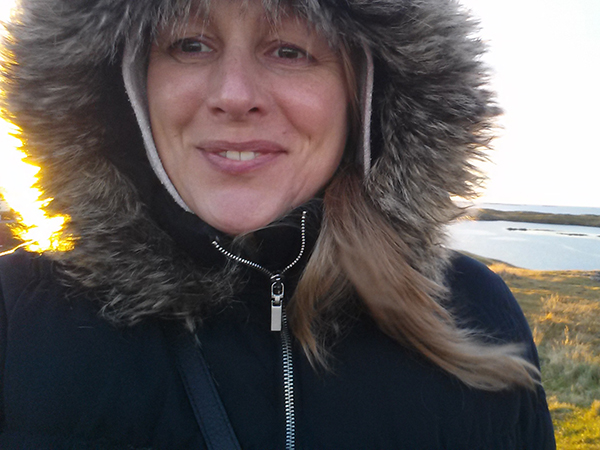MEMBER PROFILE
Britta Bohlinger, CFE, MA, BSc
Founding Director, RisikoKlár
Frankfurt, Germany
Britta Bohlinger, CFE, MA, BSc (Hons), Quality Manager and Auditor (IHK Berlin), founding director of RisikoKlár, is no stranger to debates or uncomfortable discussions. From a young age, she enjoyed lively conversations with her father about his work and later became active in academic association discussions. She said, “The element of informal mentoring was invaluable — a source of motivation, challenge and aspiration. [The discussions] were also a source of comfortable discomfort as being an active member always reminded me of how much more I needed to learn.” As the only female CFE in Iceland, she now brings her passion for discourse and spreading risk management knowledge to the ACFE’s members-only online community and her clients.
How did you first become passionate about fighting fraud?
When I turned 10, my grandmother gave me the biographies of Martin Luther King Jr. and Käthe Kollwitz — they laid the groundwork for my moral compass. I also witnessed my father working late at night and on weekends on machinery assessments and analyses. Deeply immersed, he was drafting, improving and inventing mechanisms, processes and devices that would reduce serious risks and protect the safety of fellow workers. He had suffered a work accident himself, but his loyalty to his employer never wavered and I understood that the awards and rewards he was given, in appreciation of the risks mitigated for the firm thanks to his inventions and improvements, played a key role in this lifelong commitment. We later enjoyed many arguments over environmental issues in his industry, and I consider myself fortunate for growing up with my father’s willingness to engage in ongoing intellectual battle over ethical matters with me. His respect for my perspective, coupled with my insight that risk can be mitigated — and that preventive measures in combination with a passion for risk detection and the right incentives can make a major difference — were character-building. Little did I know then that conduct and fraud risk would become central to my work one day, but the passion was instilled early and strongly.
My background in the social sciences, which entailed studies in social psychology and criminology, ignited my interest in fighting fraud and white-collar crime (German: Wirtschaftskriminalität). My work in mitigating and managing banking risk tied all these elements together in a holistic and passionate way.
What is one of the biggest lessons you have learned since becoming a CFE?
Fraud prevention and detection, whether in Britain, Germany or Iceland, is far less known and understood than I used to assume. I realized that many, even professionals in the risk, legal and scientific professions, hold misconceptions and may have severe knowledge gaps when it comes to white-collar crime, fraud risk and fraudulent activities. As a volunteer in my spare time, I also witnessed charity fraud. Thanks to my CFE credential, I have become more aware of the pervasiveness of fraud and white-collar crime across all industries, and the need to fight it meaningfully.
The biggest lesson is that we need many more well-educated fraud fighters, not only in the English-speaking nations. I also learned that the ACFE is the best place to undergo this training in order to remain at the forefront when it comes to subsequent continued professional education.
What is a memorable case or project that you have worked on; one that made you feel especially proud?
After moving to London in 2005, I worked at the headquarters of the Commonwealth Secretariat, an intergovernmental organization. It provides technical assistance in the promotion of the rule of law and good governance with a focus on sharing best practices and capacity building. I oversaw the organization of international anti-corruption and counter-terrorism conferences and training sessions in London, Jamaica and Malaysia. This entailed close collaboration with a highly diverse range of subject matter experts, including those at Scotland Yard, as well as government officials, criminal law experts and policy researchers in various nations. We worked towards very tight deadlines across three time zones, two of which were at the opposing ends of the globe. It was equally challenging, thrilling and rewarding. Germany is not a member of the Commonwealth, which meant I could only hold a temporary position (and was the only German), but having the opportunity to work with those high-caliber passionate fraud fighters and senior lawyers was deeply inspiring and presented a lasting influence.
What activities or hobbies do you like to do outside of work?
I love swimming in outdoor pools here in Iceland, and of course, hiking in snow-covered landscapes, especially when contrasted by black sands and blue waters. I have also tried stand-up paddle boarding with the Arctic surfers here, but I do prefer Mediterranean waters for my favorite water sport.
Discovering a new talent, whether music, arts, theatre or some other endeavor, is something I enjoy. The same holds true for exploring local cuisines, cultures and landscapes. Learning, reading widely and sharing knowledge is something that invigorates me, and I especially enjoy sharing this with my large extended family who have been a source of support in my fraud-fighting efforts.
Read Britta's full interview in the Career Center on ACFE.com.




